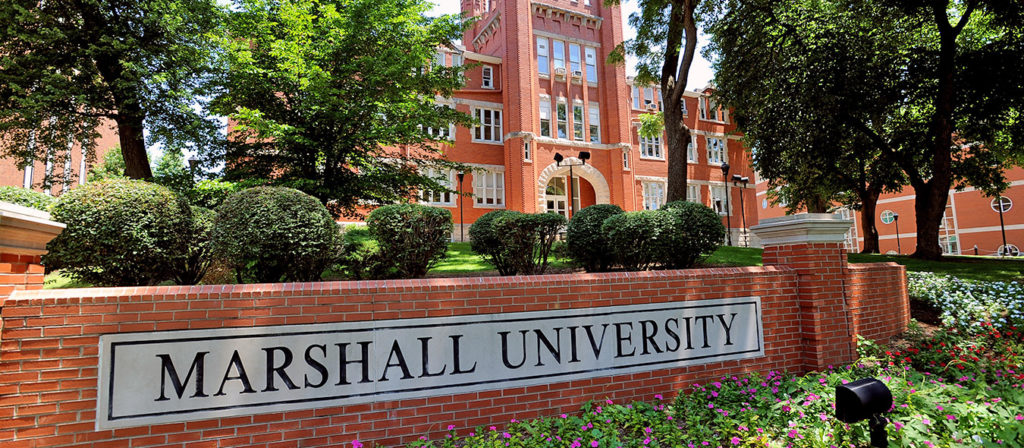Marshall University psychology faculty members and graduate students will give presentations next week at the 50th Anniversary of Comic-Con International in San Diego.
Psychology Professor Dr. April Fugett and Professor and Psy.D. Program Director Dr. Keith Beard, along with Dr. Britani Black, an instructor in Marshall’s Joan C. Edwards School of Medicine, and graduate students Kasey Kessler, Carrie Dean and Casey Collins will give two presentations. For the first, they will discuss their research examining personality and preferred “nostalgic” characters and shows, demonstrating how personality informs people’s choices of the characters they identify with and follow, often for their entire lives. For the second presentation, they will discuss a study in which they examined how a person’s personality related to his or her selected Patronus charm and House affiliation, based on the Harry Potter series of books and movies.
“We love presenting and talking to people about our research,” Beard said. “Presenting at Comic-Con International gives us an opportunity to talk with people who may not normally hear about psychological research. Just like psychology relates to every aspect of our lives, these pop culture characters and genres have become integrated into our society and also become a part of our lives. We are very appreciative that Comic-Con International allows us the opportunity to share our research with others who have common interests.”
Their first panel presentation will be Thursday, July 18, as part of the four-day event, among the largest Comic-Con events in the world. Their discussion is titled “Psychology and Nostalgia from Over 50 Years of Animation.” The Marshall team will review specific traits that are associated with over 500 nostalgia-inducing characters and their associated rankings, as well as discussing other psychological and personality factors in the context of generational differences.
“The cartoons of our youths, across a variety of genres and sources and generations, often hold a special place in our hearts,” reads the panel description on the Comic-Con International program schedule, found online at https://www.comic-con.org/cci/programming-schedule. “They can influence everything from the products we wanted in our lunchboxes, to the figurines on the mantels of our first homes or apartments, to the shirts we buy for our own children and grandchildren.
“There are classic characters that have endured for decades, such as the Flintstones and Scooby-Doo. There are movies and shows, like My Little Pony, Transformers and Care Bears, that are known as much for their merchandise as their sequels and reboots.”
The Marshall faculty and graduate students will give a second presentation Friday, July 19, titled, “Psychology and the Potterverse: Even Muggles can cast their Patronus – Expecto Patronum!” The results of their research demonstrate how personality informs a person’s choice of a Patronus charm.
“House assignments, such as Slytherin and Ravenclaw, and how personality factors influence how you are sorted were also examined,” the website says. “Additionally, specific personality traits that are associated with liking or disliking specific Potterverse characters will be reviewed.”
This panel will be presented as one of the first eleven to be held in the newly built Comic-Con Museum. The museum has selected honored guests to be included as part of its inaugural year.
“Comic-Con provides a unique opportunity to present our research and showcase the work being done at Marshall to an international audience of everyone from young children to fellow scholars,” Fugett said. “One of my favorite Comic-Con experiences happened right after one of our first presentations. This little girl from Germany hung back and talked to each of us after our panel. A few years later, a young lady approached us after one of our panels, and it was the same little girl. She’d taken the time to find us and come watch another of our talks. Comics and movies and TV shows and books and pop culture in general connect us in so many ways.
“We’ve gotten to present about personality and love and politics, and this year we’re adding generational shifts, but it really all comes back to the connection and inclusiveness of the ‘Con’ culture,” Fugett said. “We’re grateful that we get to play a small role in it.”
Originally from Jean Hardiman for Marshall University Communications.
